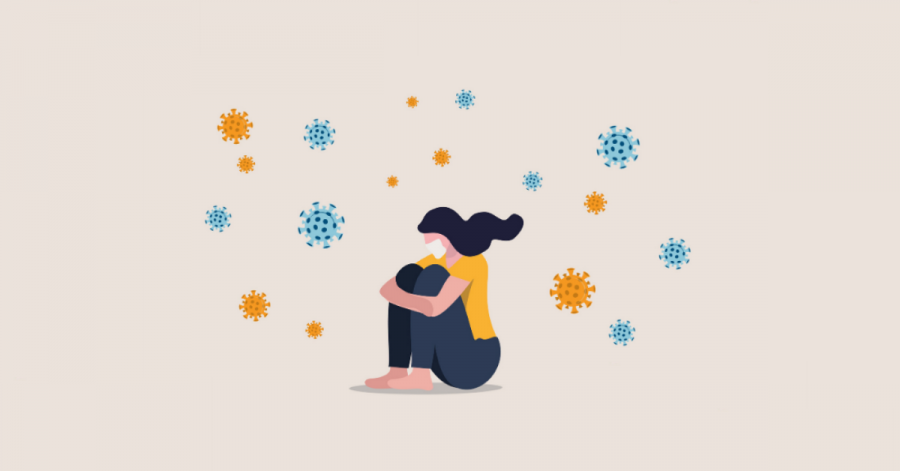Effects of Social Isolation
How can past fears become a new comfort? I always thought that quarantine helped me find myself and allowed me to recover from my tiring lifestyle. In the beginning, the ability to rest, do things on my own time, and discover new hobbies and interests improved my mental state. But being locked away and limited in the places I could go only made things progressively worse. Is it possible to spend too much time with oneself?
It all started in my room. Specifically with one object: a mirror. I constantly found myself staring at my reflection out of boredom. Confidence suddenly turned into harsh self-criticism. Eating healthier and starting to work out, something viewed as a step in the right direction for bettering one’s health, turned toxic. A girl who once couldn’t go a day without spending quality time with friends now feared social interaction, the public, and how others viewed her. I lost my old self. The humorous, social butterfly who never had a care in the world became reserved, gatekeeping her true personality. No one knew me like I knew myself and, thus, isolation became the answer.
After fully going back to in-person learning, I discovered that I wasn’t alone. In fact, the majority of my peers felt the same. Research describes these feelings as symptoms of social isolation. Social isolation is defined as “an objective lack of social relationships or infrequency of social contact” (“Understanding the Effects of Social Isolation on Mental Health” 7). Unhealthy associated symptoms include “avoiding social interactions, including those that were once enjoyable,” frequently canceling plans, “experiencing anxiety or panic when thinking about social interactions,” gaining a sense of relief when canceling plans, “feeling distress during periods of solitude, feeling dread associated with social activities, and spending large amounts of time alone or with extremely limited contact with others” (“Understanding the Effects of Social Isolation on Mental Health” 4). People who become socially isolated tend to lose connections and relationships with those who are close to them. As a result, many develop depression and anxiety.
Remote location and social media became the two biggest causes during quarantine. People felt so comforted in their homes, that the outside world became feared. In addition, while social media served as a good way to communicate with people and stay safe from the virus, it led to isolation, becoming “a substitute for meaningful conversations and in-person socialization” (“Understanding the Effects of Social Isolation on Mental Health” 9). It also became the main source of entertainment for people, especially teens. Many harsh and negative standards were set, such as having a perfect body through intense diets and constantly working out. Thus, going into public became even more of a struggle as many felt as if they didn’t compare to others or fit social media’s standards.
It’s important to realize that you are not alone. Try to find things that boost your serotonin levels and help manage negative feelings. Maybe for you, this is engaging in relaxing activities such as stretching, journaling, or reading, following a daily routine for a sense of normalcy, eating well and participating in physical activities you enjoy, and staying connected to others in a healthy way. Most importantly, try to get out. Spending too much time with yourself can force you to overthink. Some things that really helped me were taking mental health days, getting enough sleep, making plans with old friends, not canceling plans, listening to music, talking about my feelings with a close friend or family member, and going on daily walks to clear my head.
Works Cited
“Understanding the Effects of Social Isolation on Mental Health.” Online Public Health & Healthcare Administration Degrees, https://publichealth.tulane.edu/blog/effects-of-social-isolation-on-mental-health/. Accessed 11 Dec. 2021.

Sadie enjoys writing poetry, and spending time with the people she loves the most. Many of her poems have been featured in the Talent Unlimited magazine....

